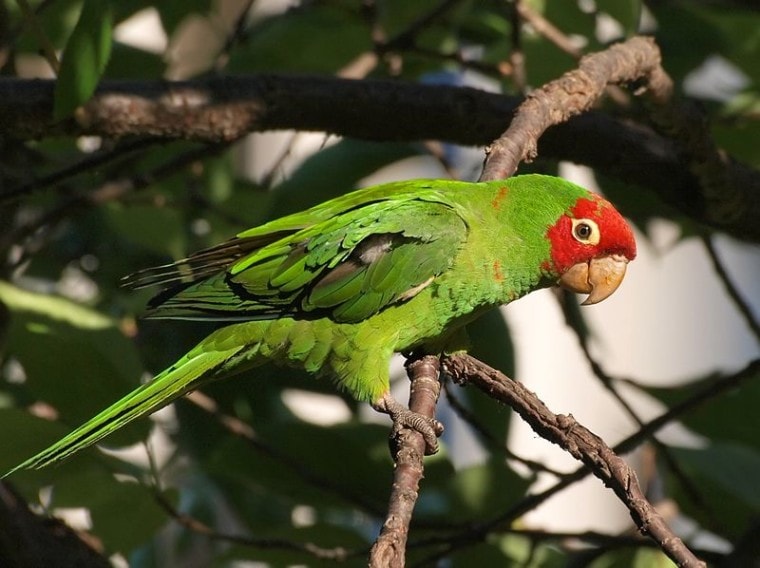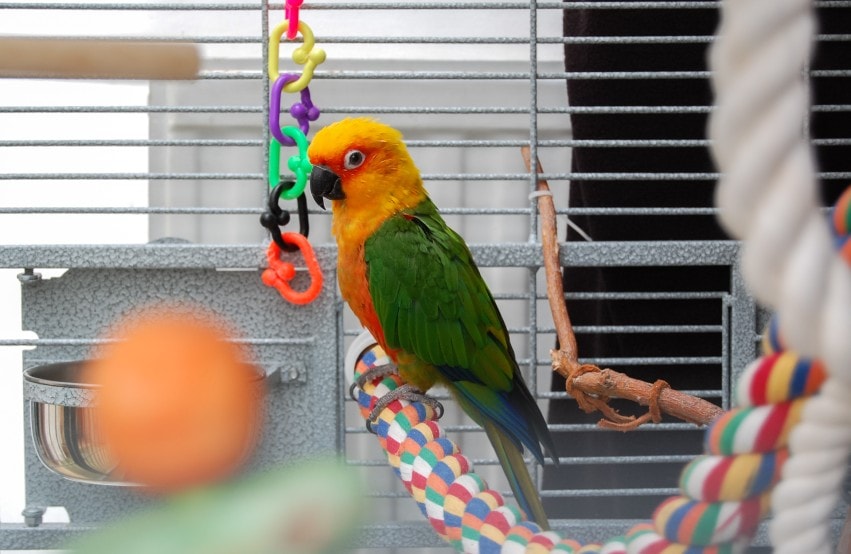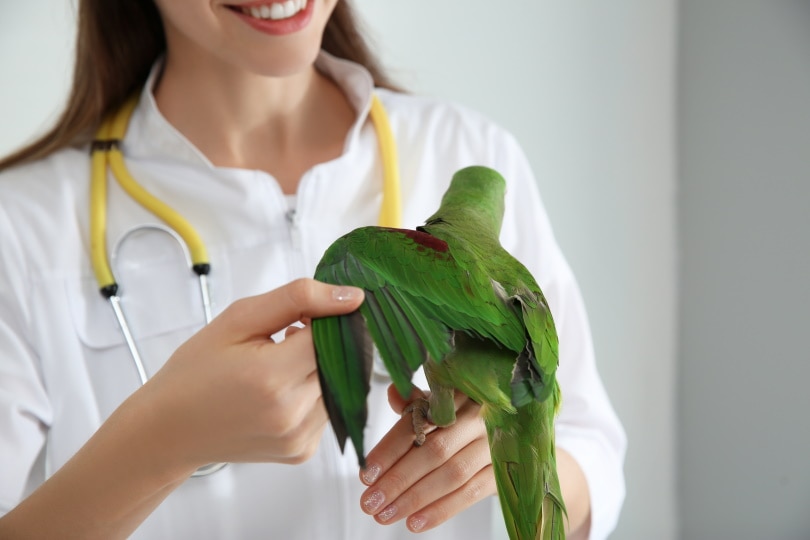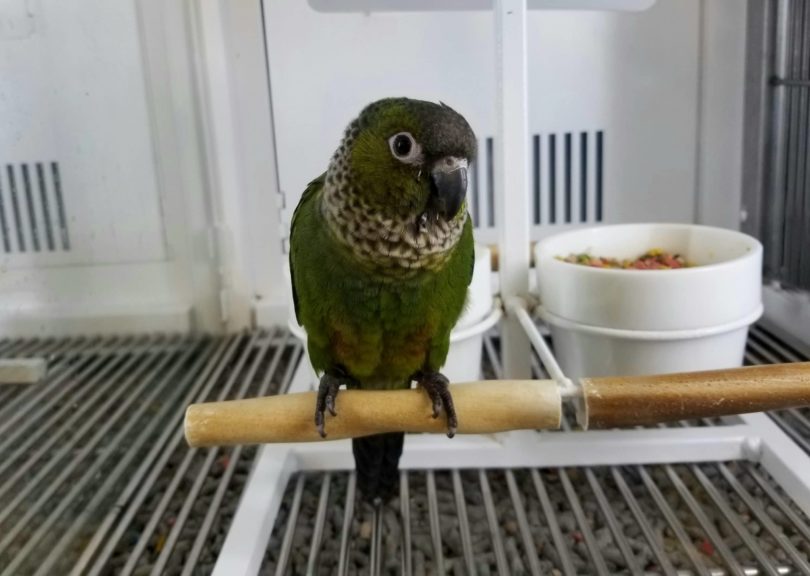
You’ve come to greet your adorable conure good morning and you spot something unusual at the bottom of their cage. Your birdie seems to have laid a little egg! This might come as quite a surprise to you if you didn’t know the sex of your conure—or if they are without a compatible mate.
You may not have known, but your female can lay eggs anyway. If this is unexpected, you might be scrambling to find answers so you can handle the situation appropriately. You came to the right place. Let’s discuss all you need to know.
 Female Conures & Egg Laying
Female Conures & Egg Laying
You might be familiar with chickens laying eggs. That is their sole purpose in most flocks. The same sentiment extends to any bird. Once birds reach the age of sexual maturity, they start to produce eggs on a schedule throughout their lifetime.
Just like any other creature, conures will lay eggs regardless of fertilization. That means if your conure lives alone, they have just as much capability for egg-laying as a mated pair—especially if the conditions are right.
The difference is simple. A mated pair could very well produce a fertilized egg, whereas a single conure cannot. Also, the frequency depends greatly on individual birds themselves. Some conures lay several eggs in their lifetime, whereas others might only lay a single clutch of eggs.

Egg Laying as a Single Conure
If your conure laid an egg as a sole bird in the cage, obviously, the egg will not be fertilized. That won’t stop your conure from sitting on the egg if they have a strong maternal instinct. Conures can have great mothering abilities.
When they have the right environment and diet, your conure can lay an egg without a mate. Aratinga conures tend to be prolific layers, which means that they are more likely to have an egg without a mate.
In addition, other factors play into the likelihood of laying eggs as well. In captivity, some of these factors include:
Egg Laying With a Conure Pair
If you have two conures living together, the egg could very well be fertilized.
If there is any chance of fertilization, but you are not trying to breed them, you can boil or freeze the egg to prevent growth. But always make sure to place the egg back with the mother as long as she will lay on it.

Does This Mean the Conure Pair Is Male and Female?
If one of your conures lays an egg, that doesn’t necessarily mean that the other bird is a male. It also does not mean that the egg is necessarily fertilized. Female conures can lay eggs regardless of whether a sexual ritual took place.
However, it is best to sex your birds to prevent this from happening in the future. When a veterinarian sexes a bird, they can check gender by a singular drop of blood.
Responding to Egg Laying
Before panicking, it’s best to contact your avian veterinarian and let them know what is going on. They will give you the best advice they can regarding your situation. Our advice is in no way intended to be a replacement for veterinarian guidance.
Provided that you’ve already contacted your veterinarian, they may have suggested that you replace the egg. This is especially true if you are not planning on breeding.
You can take the fertilized egg and replace it with a fake egg. Or you can boil the egg and return it to the bird to mimic natural cycles.
If you don’t replace the eggs, the bird might very well continue to produce eggs to replace the ones that she lost. Once your bird no longer shows interest in the eggs by either abandoning them or no longer laying on them, you can remove them from the enclosure.

Laying Issues in Conures
Female conures are susceptible to reproductive issues. Once you realize that your conure can lay eggs, you need to make sure you learn what to look out for in the future if you run into any issues.
Egg Binding
Egg binding occurs when the egg gets lodged inside of your conure, which they cannot expel. Early detection of a bound egg has high success treatments, but once your bird becomes symptomatic, it can have dire consequences. If you suspect a bound egg, rush your conure to the vet.
Hyperlipidemia
Hyperlipidemia causes an abnormally high amount of lipids in the bloodstream, affecting cholesterol. This condition can only be detected through blood work by your veterinarian.
Egg Yolk Peritonitis
Egg yolk peritonitis is a life-threatening condition where the egg yolk enters the abdominal cavity. Early treatment and detection are crucial, so look out for any abnormal behavior like abdominal or vent swelling.
Egg Laying Prevention
If you have no interest in breeding your conure and want to make sure that they stop playing, there are some measures you can take. However, we want to be clear—this doesn’t necessarily mean it will completely prevent your conure from laying anyway.
Hopefully, if you are diligent about removing triggers, your bird will cease to lay.

 Final Thoughts
Final Thoughts
If your conure did lay an egg, the first thing to do is just simply not panic. It’s not going to be as hard to take care of as you might have thought. And as long as your bird shows no signs of distress, it probably passed the egg successfully with no complications.
However, if you do notice anything abnormal or out of the ordinary, always contact your avian veterinarian.
- You May Also Like: My Parrot Laid an Egg, Now What?
Featured Image Credit: bluepaints Pixabay

 Female Conures & Egg Laying
Female Conures & Egg Laying





